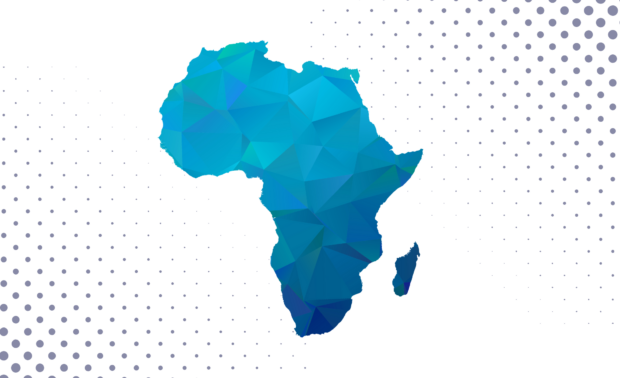On May 16th, 2025, I convened a workshop at the East Africa Internet Governance Forum (EA-IGF) in Nairobi titled “The People’s Network: The Participation of Civil Society Organizations in Digital Public Infrastructure Development in Africa.” This session, part of my ongoing research as a 2025 DIAL Fellow, focused on exploring how civil society organizations (CSOs) across Africa are participating in the development of digital public infrastructure (DPI), and the extent to which they are being meaningfully included.
The session aligned with the forum’s theme, “Advancing East Africa Digital Governance Together,” and set out to interrogate whether that “together” truly includes CSOs, or whether they continue to play catch-up in spaces where digital systems are already defining access to rights, services, and opportunity. To understand the stakeholders present and their level of DPI engagement, I incorporated a session using the Mentimeter app, where I posed several key questions to the participants. The questions – which covered participants’ understanding of DPI, their familiarity with the UN Universal DPI Safeguards framework, and the specific DPI components they engage with – resulted in valuable insights.
1. Who is shaping the conversation around DPI?
With private sector actors accounting for the majority of the session’s attendees, the results immediately revealed a power imbalance that mirrors what many of us have witnessed in national digital governance processes. The design, funding, and rollout of these initiatives and systems are often led by private actors or international consortia. Their presence at such forums is often well-resourced and well-coordinated. By contrast, civil society is frequently underrepresented, especially community-based or grassroots organizations. When private actors dominate conversations about infrastructure that governs identity, payments, and data flows, the risk is high that the systems will prioritize efficiency or profitability over rights, inclusion, and accessibility.
2. What aspects of DPI are CSOs actually engaging with?
CSO participants reported a strong focus on data governance, often framed around data protection, privacy, and open data initiatives, which reflects important civil society victories. Many CSOs have contributed significantly to pushing for Data Protection Acts, national privacy regulations, and independent data protection authorities across the continent.
However, the results also showed significantly lower CSO engagement on digital identity and payments, which is cause for concern. These components are at the core of how DPI is operationalized, yet CSOs are often engaged only after these systems are already deployed. This is the same pattern seen in Kenya’s Huduma Namba or Uganda’s Ndaga Muntu, where civil society raised critical concerns about exclusion, surveillance, and consent, but only after the rollouts had begun and communities were already being harmed.
These systems determine who can register for services, open a bank account, receive government transfers, or even vote. If CSOs are absent from these conversations, then key populations, including stateless persons, undocumented migrants, informal workers, or rural women, risk being excluded by design.
3. Are CSOs familiar with global frameworks shaping DPI?
The majority of participants (35 out of 55 people) indicated limited or no awareness of the UN Universal DPI Safeguards Framework, a document that outlines foundational principles for building inclusive, rights-based DPI systems. The framework includes safeguards on transparency, user control, accessibility, and accountability, all crucial areas that CSOs typically champion.
The fact that most participants were unfamiliar with the framework illustrates a broader challenge: the possibility that key global resources and standards are not reaching local actors who are best placed to apply them in their national contexts. It also points to a disconnect between global DPI conversations, which often happen in policy circles or multilateral forums, and local civil society movements. For example, in South Africa, efforts to digitize social protection delivery have been met with concerns about language barriers, low digital literacy, and trust. A framework like the UN DPI Safeguards could offer guidance, but only if it’s known, accessible, and adapted locally.
When it comes to meaningful involvement in DPI development, CSOs face common challenges.
The challenges that surfaced here are not new, but they are persistent. Many CSOs, particularly those working at the community level, simply do not have the technical fluency or funding to engage with the aspects of DPI technical architecture and interoperability standards. And even when they do, access to policy making spaces remains limited. Government consultations are often last-minute or tokenistic, and language or legal frameworks may not reflect the lived realities of people on the ground.
In digital payments, for instance, civil society representatives reflected that they are often treated as a stakeholder only when something goes wrong i.e. when fees are unfair, when fraud occurs, or when particular members of the communities are excluded. Rarely are CSOs consulted at the design phase, where inclusive solutions can be built from the outset. This leads to a cycle of reactive engagement, where CSOs are cast as critics or problem-finders, rather than co-creators of systems that shape the public good.
To advance a truly inclusive digital future, CSOs must be included in the DPI conversation – from the very beginning.
Throughout the session, one theme came up repeatedly: CSOs must not remain at the tail end of DPI processes. Their expertise in community mobilization, rights-based advocacy, and participatory design makes them essential actors. They are not just watchdogs, but system builders in their own right. Seemingly, participants agreed on the following priorities going forward:
- Engaging earlier and more proactively in digital identity and payments work, not just data governance.
- Building partnerships across sectors to strengthen influence and representation.
- Strengthening internal capacity through joint learning, knowledge exchanges, and access to global frameworks like the UN DPI Safeguards.
This session affirmed what I’ve seen so far across my Fellowship journey: DPI is already shaping who is counted, who is served, and who is left behind. Civil society cannot afford to be absent from the rooms where these systems are being defined. If we are serious about “advancing digital governance together,” then we must ensure that the “together” includes CSOs, not just as respondents, but as co-authors of Africa’s digital future.






